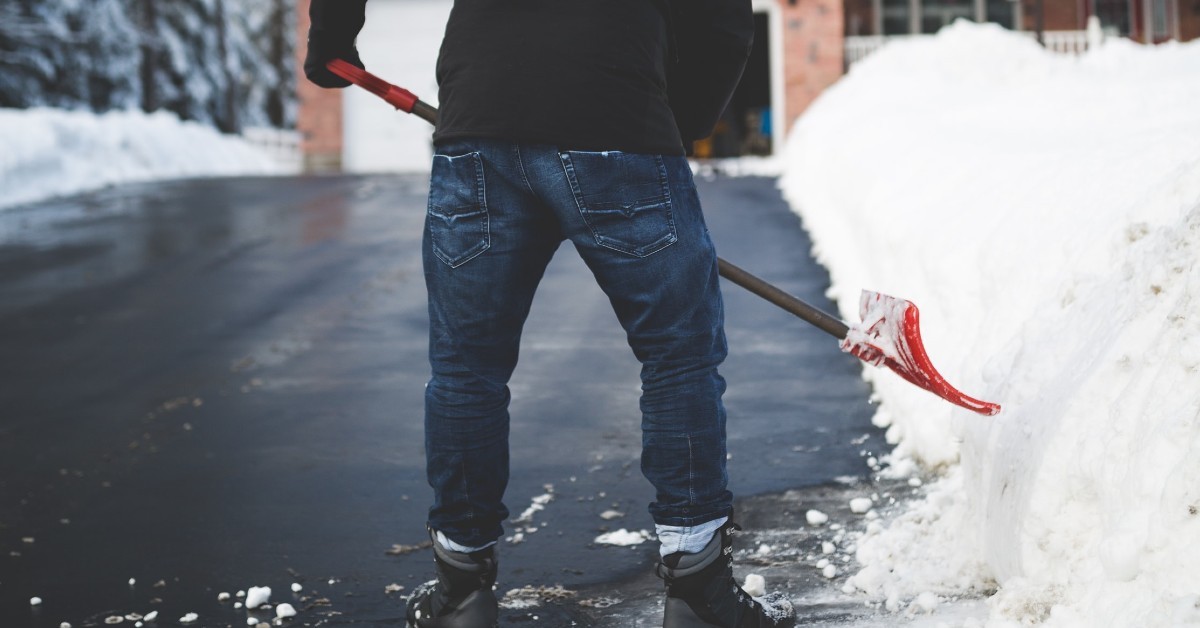
Winter Driveway Maintenance: How To Prepare Your Driveway For Winter
As Ned Stark said himself, winter is coming. Depending on where you live, you can expect plenty of frigid temperatures and deep snow that can wreak havoc on your driveway throughout the season. It is up to you to protect your driveway as best you can, and now is an ideal time to begin your winter driveway maintenance before the snow hits. Taking these preparations in advance will not only increase the chances that you will have a strong driveway next spring, but can also end up saving you hundreds of dollars in concrete repair services when the spring rolls back around.
If you do notice any spots on your driveway that could use some TLC before winter arrives, browse our selection of DIY concrete repair products from Fascrete today. Fascrete fixes spalled concrete on driveways, roads, damaged parking decks, sidewalks, stairs, and more quickly and easily using long-lasting and fast-setting MALP concrete that bonds strong. Reach out to our team today to learn more about our concrete repair products.
1. Deep Clean Your Driveway
The first step of your winter driveway maintenance is to get your driveway spic and span before the snow and cold weather. Start out by heading outside with your work gloves and a push broom to sweep away any fallen branches, leaves, and other debris. Then you will want to go ahead and give your driveway a good pressure washing. This will help to loosen up any dirt and grime that your broom may have missed and clear up any set-in stains. If these stains aren’t cleared from pressure washing, you may need to apply a chemical stain remover.
While you are deep cleaning your driveway, keep an eye out for any cracks, spalling, or other damage. Make a note of these spots as the next step in this winter preparation checklist will address these concerns.
2. Address Damages in the Concrete
Broken areas of your driveway will make the concrete much more susceptible to water damage during the winter months. Rain water and melting snow will be able to penetrate through the cracks, and as the temperature drops below freezing, it will expand and put pressure on the concrete from the inside out. This, in turn, can cause the material to shift out of place and lead to even more damage once the snow melts come spring, including displacement and even larger cracks than you began with.
In order to avoid this problem, be sure to take care of any cracks, holes, or spalling that are already present. While many people turn to pavers to get this job done, there is a simple and effective DIY method to concrete repair with Fascrete concrete repair products. Fascrete utilizes MALP concrete that binds strongly to repair damaged concrete and is so fast-setting that it is traffic-ready in as little as 30 minutes. Even if you aren’t a seasoned concrete repair man or woman, this easy-to-use, long-lasting concrete repair product is an excellent choice for DIY concrete repairs all year long. Learn more about Fascrete DIY concrete repair products today, and don’t hesitate to reach out to our team with any questions!
3. Apply Driveway Sealant
The next step of your driveway winter preparation is to give it a protective coat with driveway sealant. Driveway sealant can fill tiny cracks and may help prevent damages that can occur from de-icing chemicals. Just be sure to apply sealant once larger cracks and other damages have been repaired with your Fascrete DIY concrete repair products.
While sealing your driveway is a vital part of protecting it, it is not something that needs to be done every single year. Sealing your concrete driveway every two to three years should be just fine. So if this is a task that you haven’t completed in a few years, it might be a good idea to add this job to your winter preparation checklist.
4. Level the Ground
Sunken depressions and poor drainage on your driveway can cause water pooling from melted snow. Not only are sunken depressions something that should be repaired prior to the winter months, but leaving these damages untreated can cause slick patches on your driveway if your driveway is prone to standing water. If you are looking for assistance with leveling repairs, a local professional paver can come and take a closer look at it before winter arrives. They will be able to recommend leveling repairs as needed, such as filling depressions that will keep water from lingering on your driveway and causing potentially dangerous conditions.
5. Ensure You Have the Right Equipment
Once you have completed cleaning, repairing, and sealing your driveway, you are just about ready to kick your feet up and relax before the snow starts to fall. But, before this happens, it is always a good idea to make sure you have the necessary equipment to take care of your driveway throughout the winter months.
For example, if you have had a shovel for a few decades, it might be time to consider donating it and replacing it before winter hits. This is because shovels tend to wear out over time and break mid-shovel, and any chipped or cracked blades can cause damage to your driveway.
If you are looking to purchase a good shovel, be sure to do your research and carefully consider which one to purchase. Metal blades can have a tendency to scrape up driveways and other concrete services depending on how well it is made, while plastic shovels tend to remove snow more gently. Plastic shovels can also break more easily (again, depending on how well it is made), so just be sure to invest in a quality shovel to not only allow you to leave your home with ease this winter, but also to protect your driveway. This will also prevent the need to complete more driveway repairs come spring with Fascrete’s long-lasting concrete repair products.
6. Stock Up on Quality Ice Melt
When it comes to driveway de-icers, you will want to select the right type in order to ensure that your driveway is protected. Some de-icers such as rock salt can be quite hard on driveways, whereas potassium chloride or magnesium calcium acetate is typically more gentle.
Or, for an even more gentle approach, try sprinkling kitty litter or sand on your driveway. While these products don’t melt ice, they improve traction to help prevent potential slips or falls.
7. Remove Snow
Last, but definitely not least, is to clear snow quickly as a part of regular driveway care throughout the winter months. While smaller driveways are typically not too bad to shovel, larger driveways can be a daunting task. Don’t hesitate to reach out to your local professional snow removers to assist with the task. Signing up for services now will also allow you to get faster services than if you attempt to call on the day of a big snow storm.
There you have it! By following this checklist, your driveway should be spic and span and ready to go come spring. If you have any further questions or are interested in purchasing your own quick and easy DIY concrete repair products, shop our website and give us a call at Fascrete today! Happy winter driveway prepping!

